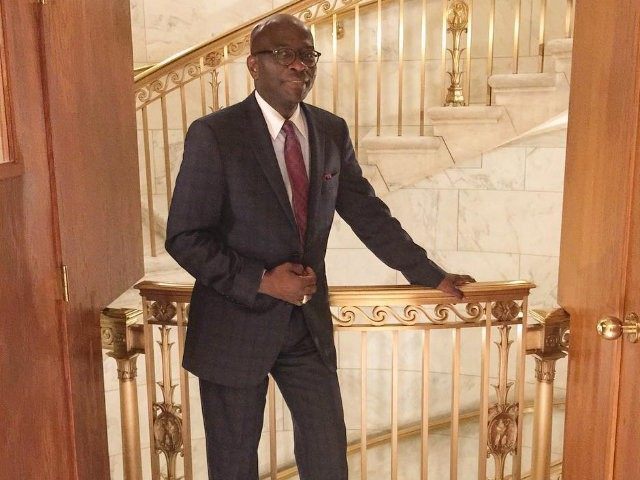Public agitation and rhetoric surrounding police relations with the African American community have reached a fever pitch.
Many have already chosen sides, either blindly siding with law enforcement or, conversely, viewing every publicized encounter between police and black citizens as a referendum on race.
The incendiary language among many protesters has recently risen to the level of calls for violence against officers. This has justifiably stoked fears among police officers that they will be randomly targeted, and added considerably to the stress of a profession already fraught with danger and uncertainty.
When a man who happened to be black allegedly ambushed and killed Harris County, Texas, sheriff’s deputy Darren Goforth last week – some police officers pointed their fingers at the “black lives matter” movement for creating a climate in which police officers, as a class, will be singled out for violence. Goforth’s alleged killer’s motives are unknown to the general public at this time but law enforcement officers have gone on record to link Goforth’s death to a rising anti-cop attitudes among the general public.
But the fact of the matter is that cops are people too. Just like you and me, they attend the same churches, send their children to the same schools, go to ball games and participate in civic activities just like ordinary citizens. The major difference is that every day they put on a uniform and a badge that certifies that they have sworn to uphold the law and protect their fellow citizens.
That duty to uphold the law sometimes puts officers in confrontational situations in which they have to resort to deadly force. It does not give officers an unfettered right to kill citizens – even if they are believed to be breaking the law.
On the other hand, it does not mean that officers should be expected to expose themselves to deadly violence either. The duty to protect and serve as officers also applies to their own lives. They are members of our community and as citizens enjoy the same constitutional rights as everyone else. That is why some in law enforcement believe that a threat against police officers as a class is also a threat against the society that they are sworn to protect.
For the past twenty years, crime of all types has dropped considerably all around the United States. Homicide rates currently stand at a thirty-year low, due in large part to the job law enforcement officers do every day. And when violence does occur, most Americans feel confident in knowing that a professional, effective and well-equipped law enforcement officer is just a phone call away. This is especially true in communities that continue to be plagued by drugs and violent crime. In fact residents of these communities clamor the loudest for heightened police presence.
In the wake of recent anti-police backlash in New York and Baltimore, crime has spiked considerably in those cities. Murder rates, robbery and theft have risen in the wake of what many believe may be officers’ hesitance to engage suspects for fear of being caught up in some public controversy over how they do their jobs. Worse yet, officers may have started to question themselves and become more fearful for their own safety in the wake of such uncertainty.
Increased scrutiny on police officers has also created an incredible amount of red tape, with the use of body cameras and mandatory documentation of even casual encounters police may have with citizens. Matters that were once resolved informally between police and citizens are now a matter of public record and have to be done by the book. In the wake of a court decree in the stop-and-frisk cases in New York City, police must now provide every citizen they stop and question (but don’t arrest) with a receipt. Police officers believe that this will open them up to all sorts of warrantless complains, litigation and punitive administrative processes that at the end of the day interfere with their primary responsibility to serve and protect.
Whatever the ultimate causes for the growing state of distrust between law enforcement and the public, the fact is that such as a state undeniably exists. And it is a problem that has to be addressed. The question of how to restore trust and respect for authority in our society is not limited to the police. It is a question that almost all authority figures are facing – whether it is parents, teachers, or even strangers on a train.
We all want to live in a safe society. And at the same time, we expect our constitutional rights to be upheld. The only way both aims can possibly be achieved is for us to take a step back, reduce the incendiary rhetoric to a simmer and begin to restore a level of civility to our discourse. And because we rely on mutual respect to preserve our free society, we should all universally and unequivocally condemn the cowardly act of ambushing a uniformed officer and gunning him down in cold blood.

COMMENTS
Please let us know if you're having issues with commenting.